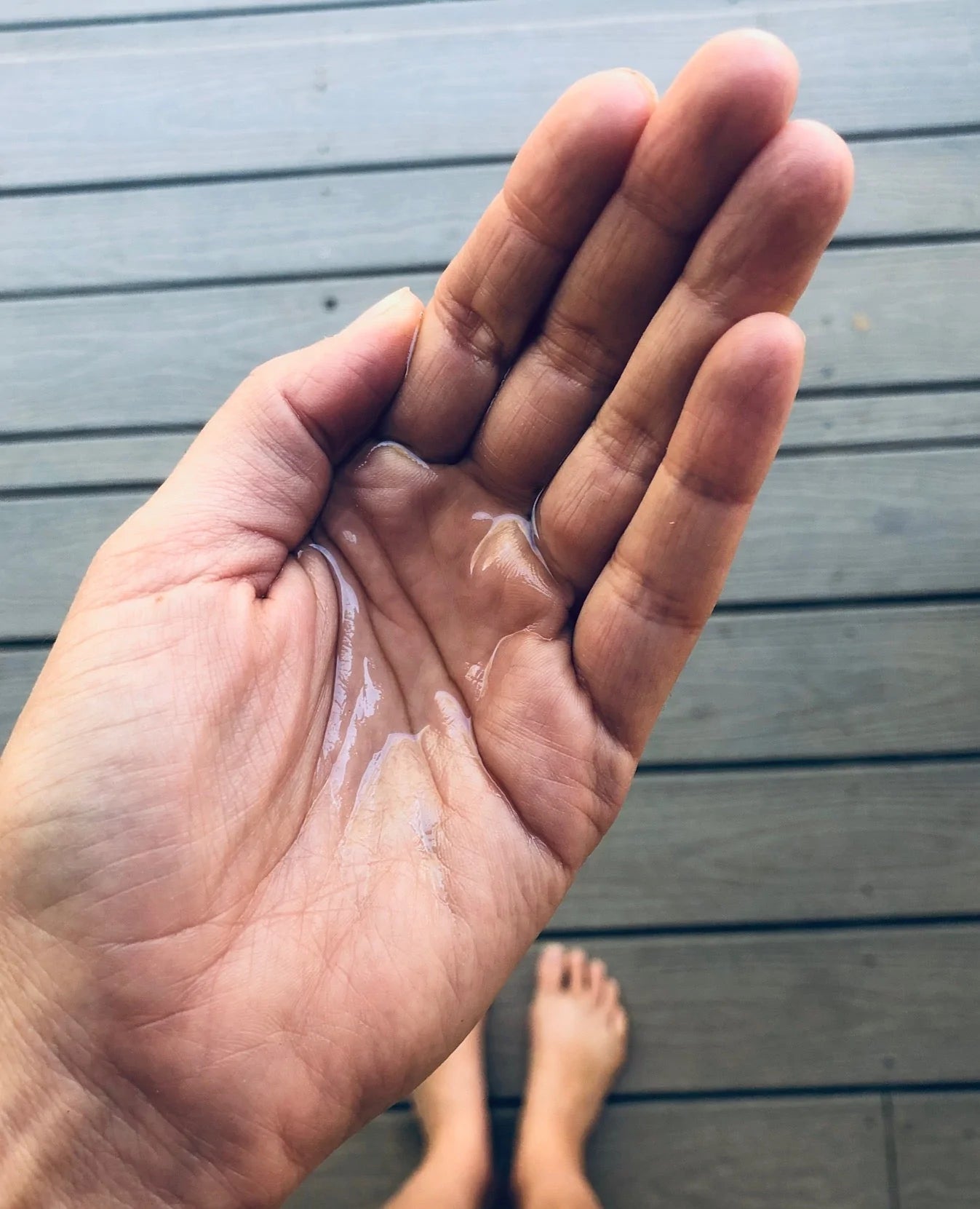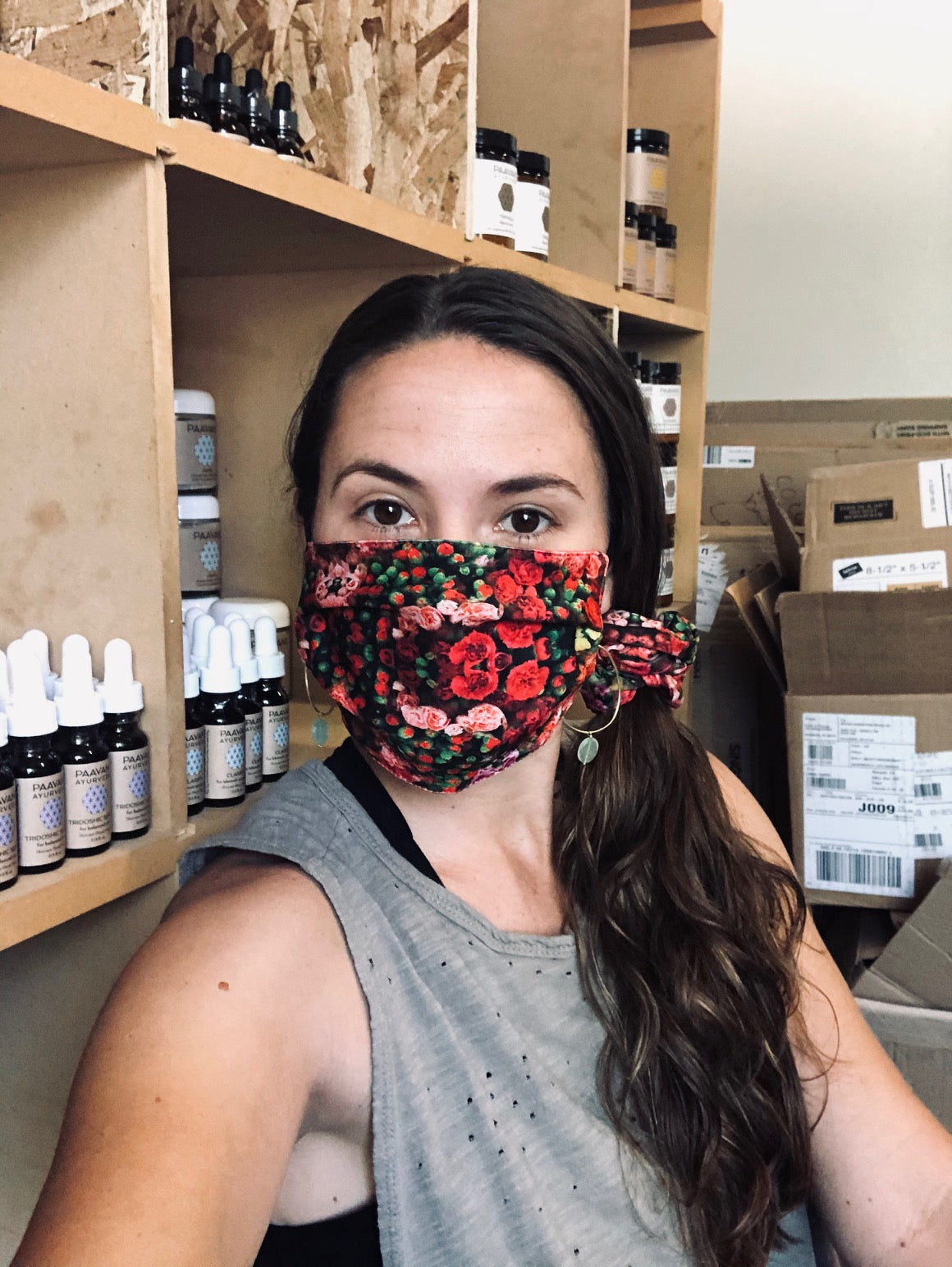
Ayurvedic Tips For Immune Health During COVID-19 & Beyond
Concerned about the coronavirus and want to learn how you can obtain resilient health? The ancient practice of Ayurveda is here to help!
COVID-19: THE FACTS
Over these past few weeks, the coronavirus, which causes an acute respiratory disease called COVID-19, has spread at an alarming rate across the world, with over 197,000+ confirmed cases to date. CNN reports that all 50 states in the USA now have confirmed cases and the European Union has decided to close its borders for 30 days. Millions across the world are on mandatory lockdown with schools closed potentially through the end of the school year, while others are taking matters into their own hands by self-quarantining to decrease the spread of the virus.
The Centers for Disease Control (CDC) explains that the coronavirus is spread when an infected person sneezes or coughs and their respiratory droplets are expelled into the air. These droplets can land in the nose and/or mouth of others who are within 6 feet, causing the virus to spread. Unfortunately, the coronavirus is highly contagious and we all should be following these basic safety protocols in order to decrease contamination:
- Wash your hands frequently.
- Sanitize your hands with a hand sanitizer that contains at least 60% alcohol.
- Avoid touching your eyes, nose and mouth with unwashed hands.
- Sanitize daily frequently touched surfaces with a cleaner that contains at least 70% alcohol.
- Use a tissue or sneeze and/or cough into your elbow, not your hands.
- If you can work from home, stay home.
- Stay at home if you or a household member is sick.
- If you are sick, wear a face mask to contain the spread of the virus.
- Practice social distancing.
- No unnecessary travel.
The current state of world health and the above facts alone can easily make vata dosha rise in the body, creating feelings of anxiety, overwhelm and fear. These feelings can ultimately weaken the immune system and leave us even more vulnerable to disease. Luckily, we can all utilize the traditional healing system of Ayurveda to help regulate our stress response and keep the immune system strong and resistant to pathogens that lead to the common cold, flu and now, the coronavirus. Known as the sister science to yoga, Ayurveda is India’s 5,000-year-old medical system. This ancient wisdom offers excellent preventative healthcare protocols, which empower all of us to take an active role in our health and wellness.
Ayurveda explains that in order to maintain a strong and vital immune system, agni must be balanced, ama eradicated and our ojas abundant. When we are able to keep agni in balance, effectively expel ama from the body and keep ojas strong, we are able to stop disease and pathogens from moving deeper into the systems of our body. What we especially love about Ayurveda is its strong focus on preventative medicine versus the western or allopathic medical approach which most often addresses an issue once disease has already arrived.
There is an English proverb noted in John Gower’s 1390 poem, Confessio Amantis, that says “Don’t shut the stable door after the horse has bolted”. Essentially, this proverb is saying that it is too late to take precautions once the damage has already been done. Hence, it is of vital importance to understand that when a disease has entered the body, it is already past the time when one should start building immunity. The implementation of building a strong and healthy immune system is ideally underway months, or even years, before a major disease or pandemic arises. This is not to say that Ayurvedic protocol to build immunity in the midst of the coronavirus is in vain. We encourage you to take this opportunity to prioritize your daily self-care and hygiene practices in order to strengthen your immune system, as a precautionary measure to protect yourself from the current health scare and any future health epidemics to come.
Balance Agni for a Healthy Immune System
One of the secrets to a healthy immune system is a healthy agni. Agni is the Sanskrit term for fire. There are countless agnis, or fires, in the body which are involved in the following:
- digestion
- metabolism
- biochemical reactions
- cellular intelligence
- cell communication
- transformation
- maintaining proper body temperature
- strength & vitality
- confidence
- passion
- enthusiasm
- mental clarity
- sensory perception
- skin health
There are countless agnis in the body but the most important agni is called jatharagni, also known as our digestive fire. Located in the stomach, jatharagni is the most important because it affects all the other agnis. When we ingest food, jatharagni (or we can say simply, agni) metabolizes what we eat by producing hydrochloric acid in the stomach which breaks down food. During digestion and metabolism, jatharagni transforms food into vital nutrients and enzymes while also deciding what is not useful for the body, expelling it as waste. Ultimately, our body uses the produced nutrients and enzymes to generate internal heat as well as provide nourishment for the tissues and cells of the body. As you can see, our agni has vital intelligence and transformational properties, which help to explain why Ayurveda views proper digestion as one of the Three Pillars of Life, and improper digestion to be the root cause of all disease.
Wondering how to know if your agni is in balance? Here are some signs of a healthy agni:
- steady appetite
- daily elimination or bowel movements
- little to no coating in the back of the tongue
- no digestive upset before, during or after meals
- steady weight
- steady energy & enthusiasm
- ability to reason & troubleshoot
- calm nature
- clear mind
- strong immunity, have not been sick
When agni is disturbed, it can be either high, low or variable. Here are some signs of a high agni:
- strong appetite (think feeling “hangry”!)
- digestive upset such as hyperacidity, heartburn and/or smelly gas
- loose stools
- underweight
- sharp body odor
- acne and/or blemishes, especially in the T-Zone
- difficulty falling asleep
- anger and/or irritability
Below are signs of low agni:
- low appetite
- digestive upset such as nausea and lethargy after eating
- constipation due to slow peristaltic action in the colon
- overweight
- congestion in the sinus region
- clammy and/or congested skin
- cystic acne
- difficulty waking up in the morning
- brain fog
- lethargy & feeling unmotivated
- feeling attached & stubborn
Variable agni can be a mixture of the above two lists and may also include the following:
-constipation -dry skin -non-smelly gas -the tendency to snack versus eating larger meals spread at least 3 hours apart -anxiety, fear and/or overwhelm -insomnia
If you are experiencing any of the above symptoms, you may be experiencing an imbalanced agni. The long and short of this is that you want an agni that is not too high nor too low. Agni that is too high may result in weight loss while low agni results in ama, or a build-up of toxic residue in the body. High, low or variable agni results in the tissues of the body not receiving the vital nutrients they need to function optimally. This ultimately impairs how you feel overall and can weaken your immune system.
Some simple recommendations we have to get your agni healthy and back on track are:
- Say NO to ice water, this puts out your agni or digestive fire.
- Use a copper tongue cleaner in the AM to expel ama from the tongue & stimulate agni.
- Drink warm lemon water in the AM & throughout the day to alkalize the digestive tract & stimulate agni.

- Drink an Ayurvedic Digestive Tea 30 minutes prior to your meal to restore agni.
- Instead of a digestive tea, you can create a digestive churna by combining 1 tsp. Tridoshic Spice Blend with ½ cup tepid water, mix together to combine and drink 30 minutes before each meal.

- Grate a small piece of ginger with a squeeze of lemon and ingest before your meal to stimulate agni.
- Incorporate culinary herbs like cumin, coriander, turmeric, fennel and cardamom into your cooking to aid in proper digestion.
- As much as you can, eat fresh food, organic if possible.
- Including plenty of fresh fruits and vegetables, they are abundant in prana or life force energy.
- Beyond thinking of just what you eat, begin to reflect on how you eat. Use the 15 Ayurvedic Guidelines of Healthy Eating to cultivate greater awareness and gratitude with each meal and snack.

Tips on How to Clear Ama
Once agni is healthy and functioning properly, the next step in supporting the immune system is to clear the body of ama. As we alluded to earlier, ama is the Sanskrit term for toxins that can build up in the body due to impaired agni. Ama creates a sticky, sludge-like residue that first accumulates in the digestive tract. If the ama is not cleared, it can move into the bloodstream and circulate throughout the body, affecting the channels, tissues and cells of the body. When ama moves deeper into the body, it is harder to eradicate and its accumulation can lead to a plethora of diseases including arthritis, candida, atherosclerosis and tumors. Thus, it is essential to cleanse the body when ama is present. Ayurveda recommends cleansing during seasonal transitions with the fall and spring equinoxes being the best times of the year.
A traditional, gentle Ayurvedic cleanse involves a mono-diet of kitchari and can be as short as 3 days and as long as 21 days. The idea behind eating a mono-diet of kitchari is to give the digestive system a break so your body can focus on restoring other aspects of itself and expel ama. If you are new to making kitchari, please check out our recipe!
If you would like to take a deep dive into Ayurvedic cleansing, we recommend consulting with your local, qualified Ayurvedic Practitioner to see if Panchakarma is right for you. Panchakarma is a strong purification therapy that involves preparing the body for the cleanse (Purva Karma), the main techniques for elimination (Pradhan Karma) and follow-up techniques for rejuvenating the body once the cleanse is complete (Praschat Karma). If you are looking for a Panchakarma Retreat Center, we highly recommend our friends at Blue Sage Ayurveda.
Some Ayurvedic daily practices we recommend to gently expel ama from the body include:
Take Triphala Daily!
Triphala contains 3 superfruits from India: haritaki, amalaki and bibhitaki. When ingested, these plants have the intuitive wisdom to draw ama from the various tissues of the body and re-centralize it back into the digestive tract where it can then be expelled out through elimination. It also helps establish daily elimination and is high in Vitamin C. To learn more about the wonders of Triphala, visit our blog post: Triphala: The Superstar Superfruits of India.

Tongue Clean & Oil Pull
As discussed earlier, tongue cleaning, also known as tongue scraping, is a wonderful way to stimulate agni as well as eliminate the ama, or coating, from the back of the tongue. We recommend tongue cleaning immediately upon waking before you even take your first sip of water. To tongue clean, simply extend the tongue out from the mouth and place the tongue cleaner towards the back of the tongue. Gently scrape the coating, or film, forward & out of the mouth, washing the ama off of the tongue cleaner after each scrape. Repeat until you have removed all of the ama off of the tongue.

Following tongue cleaning, we recommend oil pulling with one of our PAAVANI Pulling Oils. Oil pulling helps draw ama out of the body as well as helping to keep your teeth pearly white and your mucous membranes healthy! To oil pull, vigorously swish and pull 1-2 tsp. of oil around the mouth and in between the teeth. Continue for 5 to 20 minutes. When complete, discard the oil into a trash can. It is important not to discard the oil into your sink, as it will eventually clog your pipes. It is also essential that you avoid swallowing the oil, as this would be counterproductive. Remember, you are working to draw ama out of the body.

Neti & Nasya
If you do not already have a neti pot, we highly recommend purchasing one to help keep pathogens out of the nasal passageway. After you neti, allow your nostrils to dry and then apply a nasya oil into your nasal passageways. This is going to help to moisturize and coat the mucous membranes of your nose, further protecting you from any funk or harmful respiratory droplets that may be floating around in the air. Are you new to the practices of neti and nasya? No need to worry! You can read all about them in our blog post: Neti & Nasya: Ayurvedic Practices for Optimal Wellness.

Break a Sweat!
Sweating is one of the ways we expel waste from the body, along with urination and bowel movements. These three wastes in Ayurveda are called the malas of the body. Accumulated ama can be expelled throughout these three functions and sweating has the added benefit of increasing circulation, strengthening the cardiovascular system and expelling congestion in the body, including the skin.
Our favorite way to break a sweat is of course with Ayurveda’s sister science- yoga! Practicing yoga, like all exercise, helps to stimulate the lymphatic system which in turn helps to strengthen our immunity to disease. Other ways to break a sweat are through exercise of any kind, saunas, steam rooms and the Ayurvedic body therapy called swedana.

If your local yoga studio is temporarily closed due to COVID-19, we encourage you to keep your practice alive through online yoga classes. Many studios are offering classes virtually in order to stay connected with their community. To help keep you accountable in doing your practice, have a yoga buddy to join a class with from afar. It is important for us to continue to elevate and motivate one another during this uncertain time.
Ways to Build Ojas to Protect Your Health
After ama is cleared from the body, now it is time to build ojas. Ojas can metaphorically be described as the nectar of the body that keeps us feeling satisfied and complete. Physically, ojas protects the health of each cell and enables the tissues and systems of the body to operate at a high level, protecting the body from disease and environmental stressors. Furthermore, the immune system is a physical manifestation of ojas. In the emotional body, ojas stabilizes the mind, allowing us to withstand stress; hence, we can stay calm and at ease during the even most stressful situations. When ojas is low, pathogens caused by the common cold, flu or coronavirus can more easily cause disease and malfunction in the body; thus, it is of the utmost importance to keep ojas strong, especially during these times.
Below are some effective ways to keep ojas vital and strong:
- Eat ojas-rich foods including ghee, almonds, almond butter, almond milk, raw cow’s milk and dates.
- Practice self-abhyanga, also known as traditional Ayurvedic self-massage.
- Let the Ayurvedic rasayanas (adaptogens), Ashwagandha and Shatavari, be your new favorite plant allies.
- Enjoy Golden Milk, an Ayurvedic turmeric elixir, anytime of the day but especially enjoyable before bed.
- Prioritize sleep! The body needs time to rest, repair and replenish itself. If you have trouble with getting to bed, please check out our blog post: Ayurvedic Evening Rituals to Ensure Your Beauty Sleep.
Ayurveda’s Preventative Protocol
We are certainly living in unstable times with climate change and global poverty, as well as humanitarian and environmental violations. This current state of the world, which exemplifies our disharmony with nature, affects each and every one of us, regardless of age, race, sex and social status. Thankfully, through the practices of Ayurveda, we can learn to live in harmony with nature, while maintaining optimal health so that we can show up for the world when it needs us the most. We hope that you have gained a better understanding of how you can protect yourself from the effects of the coronavirus and that we have encouraged you to explore some of the above Ayurvedic protocols in order to take a stand for your health and wellbeing.
Wishing you and yours abundant health and safety during this unprecedented time.




Leave a comment
This site is protected by hCaptcha and the hCaptcha Privacy Policy and Terms of Service apply.